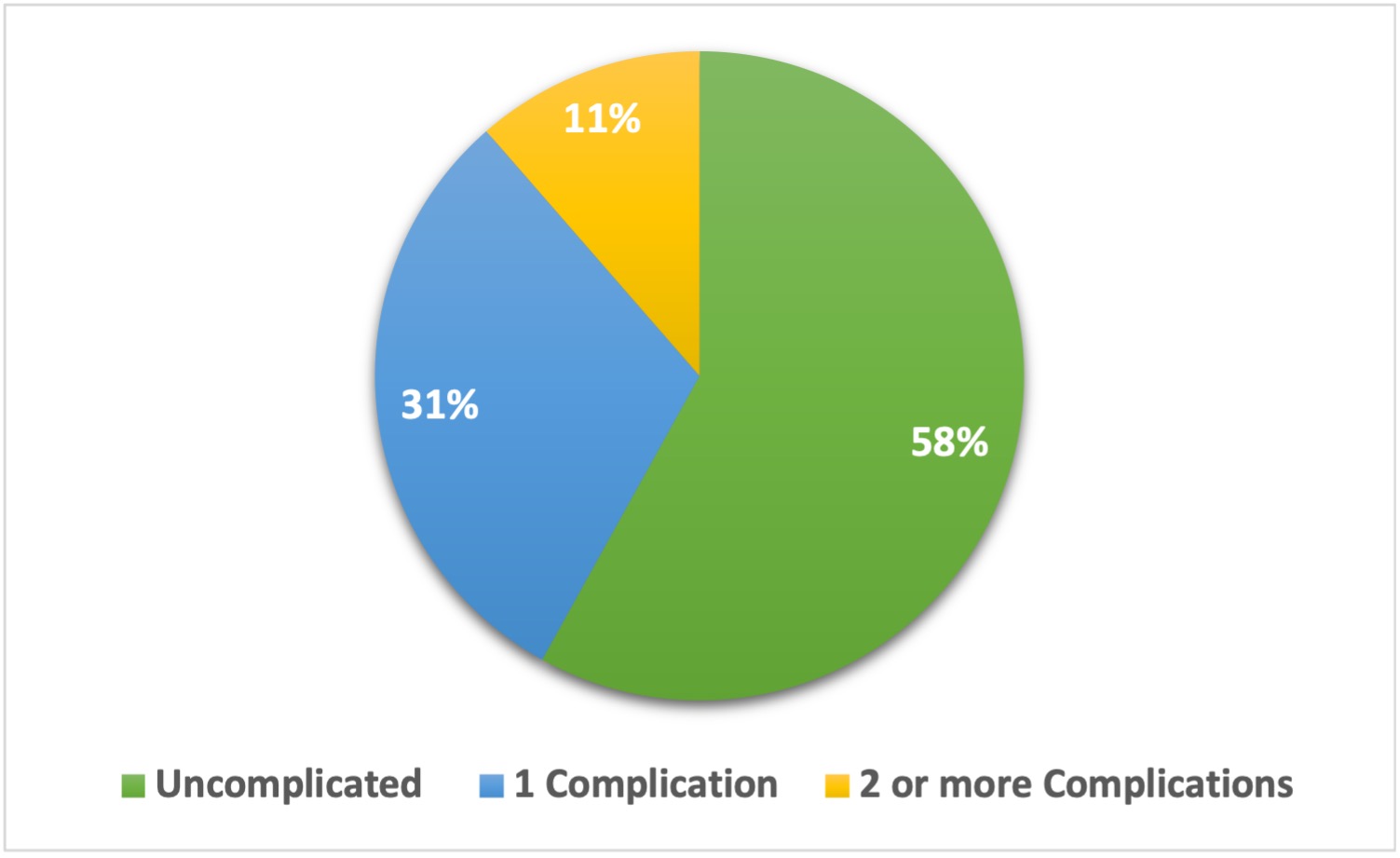Session Information
Session Type: Poster Session A
Session Time: 8:30AM-10:30AM
Background/Purpose: National registries are excellent sources of data to allow analysis of inflammatory arthritis such as axial spondyloarthropathy (axSpA). Our understanding of axSpA has evolved rapidly over time resulting in improved recognition of the disease. Unfortunately, for women with axSpA there is limited data on pregnancy outcomes in this population. To address this issue, data was collected on pregnancy within the Ankylosing Spondylitis Registry of Ireland (ASRI), which is a source of epidemiological data on axSpA in Ireland. The aim of this study is to examine the prevalence of pregnancy and fetal complications in females with axSpA.
Methods: The ASRI records information on baseline demographics, imaging, medications, patient outcomes and comorbidities. To be considered for enrolment patients must have been diagnosed with axSpA by a Rheumatologist and meet the ASAS criteria for axSpA. Informed consent was obtained from all patients by a trained investigator, with ethical approval obtained from local hospital ethics committees. A dedicated section within the ASRI collects data on pregnancy, fertility and breastfeeding. Data on these outcomes was then recorded retrospectively for axSpA females enrolled in the ASRI.
Results: At the time of analysis 220 females were enrolled in the ASRI, representing 24.3% of the total population of the registry. Mean age of females was 43.9 years, with a mean disease duration of 18 years and mean delay to diagnosis 7.86 years. 68.6% (151) had radiographic sacoiliitis, while 49.5% (109) had sacroiliitis on MRI. Mean scores for females in the ASRI were: BASDAI 4.6, BASFI 3.82, BASMI, HAQ 0.6, and ASQoL 7.65.
Data on pregnancy was available in 76 women, with 61 women reporting a total of 210 pregnancies resulting in 166 live births. Of these pregnancies 58.1% (122) were uncomplicated and 41.9% (88) were complicated, with 11.4% (24) of pregnancies encountering multiple complications (figure 1).
The frequency of miscarriage was high affecting 20.5% (43) of pregnancies overall in 37.7% (23) of women with a history of pregnancy. Of the pregnancies resulting in live births, the most common pregnancy complication was caesarean section in 10.8% (18) followed by preterm delivery in 11.4% (15), while the most common fetal complication was NICU admission in 11.4% (19) (figure 2). Only 4 women (5.3%) reported difficult conceiving and need for fertility specialist referral, but none underwent assisted reproductive therapy. Prevalence of breastfeeding was low, reported in 33.7% (56) of live births.
Conclusion: Data from the ASRI indicates a high frequency of pregnancy and fetal complications in women with axSpA. These results represent a preliminary analysis of pregnancy outcomes in axSpA pregnancies collected via a large national registry. Ongoing data collection will allow comparison to national averages. This provides much needed insight into the impact of axSpA on pregnancy, which can be used to improve monitoring and management of axSpA women during their pregnancies. Furthermore, data on prevalence of breastfeeding can be used to encourage discussion of benefits and safety while on medication of breastfeeding between Rheumatologists and axSpA women.
To cite this abstract in AMA style:
Maguire S, Gallagher P, O'Shea F. High Frequency of Complications in Axial Spondyloarthropathy Pregnancies: Emerging Data from the Ankylosing Spondylitis Registry of Ireland [abstract]. Arthritis Rheumatol. 2021; 73 (suppl 9). https://acrabstracts.org/abstract/high-frequency-of-complications-in-axial-spondyloarthropathy-pregnancies-emerging-data-from-the-ankylosing-spondylitis-registry-of-ireland/. Accessed .« Back to ACR Convergence 2021
ACR Meeting Abstracts - https://acrabstracts.org/abstract/high-frequency-of-complications-in-axial-spondyloarthropathy-pregnancies-emerging-data-from-the-ankylosing-spondylitis-registry-of-ireland/


